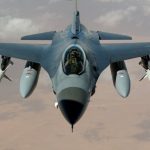In the past, thousands of members of the Japanese armed forces have assisted the United Nations in some of the world's most dangerous conflict zones while traveling the globe. On the other hand, the priorities at home have evolved. In the past, thousands of Japanese police officers, citizen election observers, and members of Japan's Self-Defense Forces served under the flag of the United Nations. [UN] At this time, Japan will only permit six officials to serve with the United Nations, and all of those officials will work in command facilities rather than on the front lines.
According to observers, as the level of violence in conflicts rises, officials in Tokyo have been increasingly reluctant to participate in overseas operations due to the ever-increasing dangers connected with doing so. In addition, there is an urgent requirement to keep troops closer to home as a result of the rising tensions in Northeast Asia.
Taking a step back suggests that Japan will play a lower part in keeping worldwide peace, which was the opposite aim of the International Peace Cooperation Law, which was passed in June 1992 and provided a framework for sending personnel overseas. The law also established a framework for maintaining peace in Japan's territorial waters.
Since the passing of this Act, Japanese personnel have helped rebuild schools, hospitals, and bridges all over the world, as well as rescued survivors of natural disasters and carried out airlifts. They have also secured the smooth holding of elections.
The Self-Defense Forces' most recent large-scale deployment took place in South Sudan, when they stationed a military contingent of 350 members in Juba beginning in 2012. On the other hand, in May of 2017, this was quickly canceled as the risk of violence continued to rise.
"The Japanese mission was to carry out engineering work to assist the local population," said Garren Mulloy, a professor of international relations at Daito Bunka University. "They were working alongside some very capable other foreign units, from France, Britain, and China," he said.
"But then fighting broke out in Juba, and the Ministry of Defense, the head of the SDF, and then-defense minister [Tomomi] Inada covered up the fact that the units were in the vicinity of armed conflict," he said to DW.
According to the legislation that was passed in 1992, Japanese peacekeeping teams are only allowed to operate in regions where ceasefires are currently being observed, and the use of firearms "shall be limited to the minimum necessary to protect personnel's lives."
As a result of the stringent regulations of operation, Tokyo made the decision to prematurely withdraw its units. According to what Mulloy indicated, when questioned about the premature departure, bureaucrats and top military officials forged documents and claimed that others could not be located.
The Japanese populace has never been persuaded that there is a requirement for having military stationed in other countries. When the facts of the operation were finally made public, the administration came under intense criticism not only in this country but also around the world. According to Mulloy, neither of Tokyo's partners saw it favorably, and they came to the conclusion that Japan was "untrustworthy and incompetent" as a result. This did not assist Tokyo's image.
According to Mulloy, this was a far cry from Tokyo's original plan, which was to raise the country's international image at a time when the economy was booming and there was widely spread expectation that a more confident Japan would play a larger role in global security, economic, and political issues.
In 1992, during their service for the United Nations in Cambodia, two Japanese soldiers were killed, both while serving on election monitoring missions. It was the first mission after the legislation had been established in 1992, and the killings spurred calls for the unit to be abolished. These calls were made in the National Diet, among other places. These calls were met with resistance from the government at the time, but it did set a precedent for subsequent governments, who believed that bringing body bags from overseas back into Japan could have catastrophic consequences.
An expert working for Japan's National Institute of Defense Studies stated that the worry has increased in recent years due to the deterioration of the overall state of global security (NIDS).
The official, who did not wish to reveal his identity because he was not authorized to communicate with the media, stated that there has been a definite change in the environment.
According to the official, there were also other factors that motivated them. According to his explanation, Japanese governments have asked themselves what the merits are of sending the Self-Defense Force to countries like Africa or the Middle East. Of course, they acquire some on-the-ground experience, but Japan needs to focus on modern technology to assure its own defense, which cannot be learned on a peacekeeping operation.
The preceding is a summary of an article that originally appeared on The Daily Cable.




